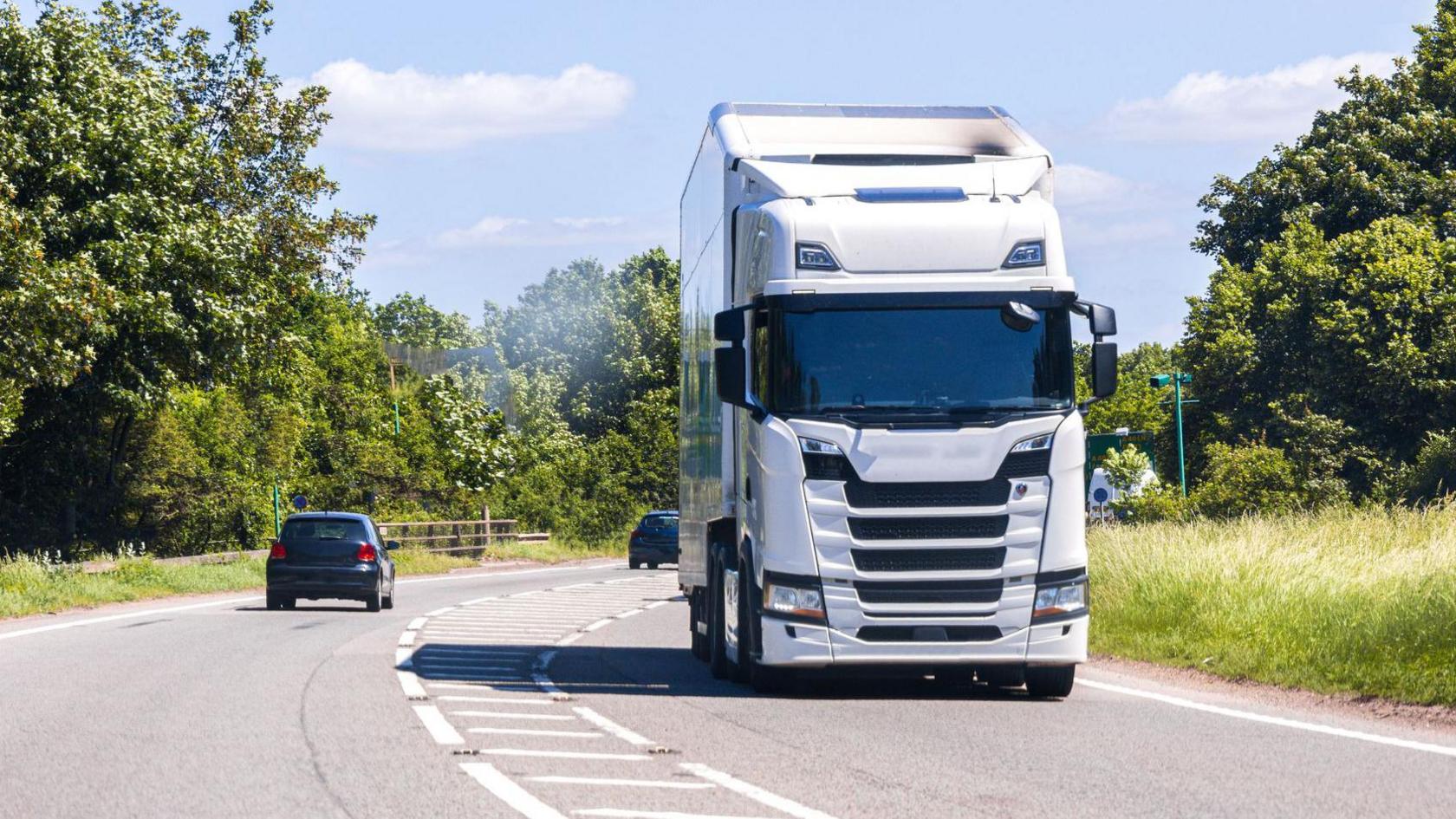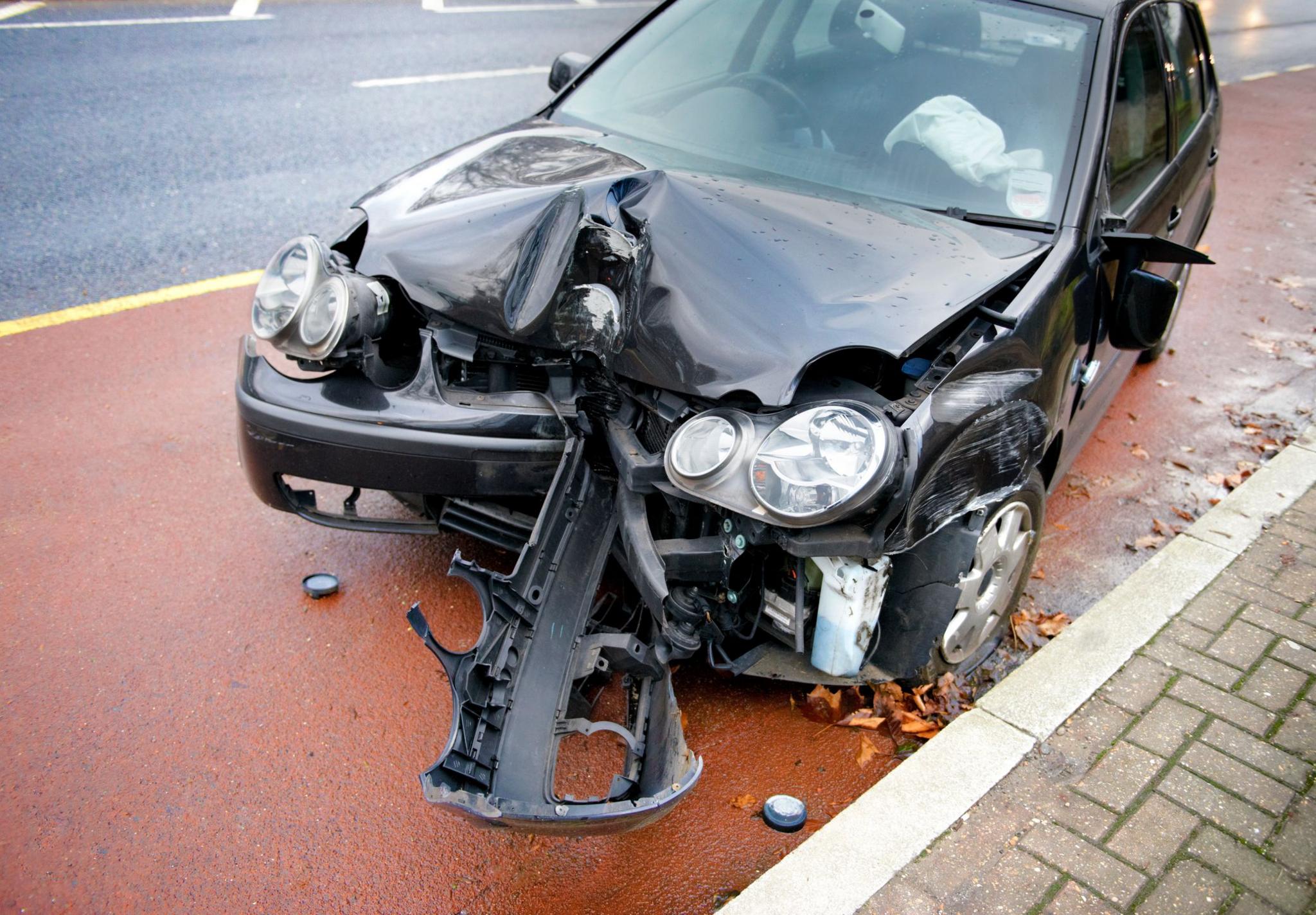Car speed limits could be cut but raised for HGVs

The proposals could see the speed limits reduced for cars but increased for HGVs on some stretches of road
- Published
Speed limits for cars could be reduced from 60mph to 50mph on single carriageways while increasing for lorries, under new Scottish government proposals.
The plans would see the limit for HGVs raised from 40mph to 50mph on single carriageways and 50mph to 60mph on dual carriageways.
The government is launching a consultation on the changes which it hopes will halt a year-on-year spike in road deaths.
However, the Scottish Conservatives described the plan as "a ludicrous measure which seeks to demonise motorists in rural areas who rely on using a car".
Ministers to ask public about reducing speed limits on roads
- Published9 October 2024
Falling number of Scottish road accident deaths
- Published29 May 2024
Will all of Scotland's streets have 20mph limits?
- Published7 December 2023
The government's latest plan is separate from a commitment to drop the speed limit on all "appropriate" urban roads to 20mph by the end of 2025.
Ministers are aiming to half the number of people killed and seriously injured on Scotland's roads by 2030.
Transport Secretary Fiona Hyslop announced the proposals during a visit to the Road Expo in Glasgow.
The minister said road fatalities in 2024 so far were 26% higher than at the same period last year.
Hyslop said road safety was a priority for the government and it remained "absolutely committed" to working towards making Scotland’s roads the safest in the world by 2030.
She said: "Evidence from the National Speed Management Review indicates that revising speed limits could lead to a significant reduction in the number of injury collisions on our roads while maintaining journey times and enhancing journey time reliability.
“We must never lose sight of the fact that one death on our roads is one too many.
"These proposed changes represent a vital step towards achieving national casualty reduction targets, and I urge everyone to take part in the consultation and help shape the future of road safety in Scotland.”
Using less fuel
Scottish Conservative North East MSP Douglas Lumsden criticised the proposals and accused the SNP government of ignoring the concerns of people living in rural areas.
He said: “Unlike the central belt, the north and north east don’t have the luxury of motorways connecting locations across the region.
“The SNP government should be prioritising the upgrade of our single carriageway roads, like the A96 and A90 north of Ellon, instead of implementing ridiculous schemes like this to cover up for their failings."
Under the current rules, speed limits for cars are set at 30mph in built-up areas, 60mph on single carriageways and 70mph on dual carriageways and motorways.
However, local authorities are able to set limits below these, such as 20mph in built-up areas or 50mph in a stretch of road with sharp bends.
The Road Haulage Association (RHA) said the Scottish government should be commended for consulting on the change to HGV speed limits.
Martin Reid, the body's policy director for Scotland, Wales and Northern Ireland, said: "The 50mph trial on the A9 has resulted in a reduction in risky overtaking with a resultant improvement in safety, backed up by a decade of data from roads in England and Wales.
“The extension of a 50mph limit across all Scottish single carriageway A roads should be expected to yield similar results."
He added: “We also know that lorries use less fuel and create fewer emissions when they can drive at 50mph, and shorter journeys create savings which can be passed on to customers."

The Scottish government says the number of fatalities on the roads looks set to be higher this year than in 2023
The number of deaths on Scottish roads in 2023 on was the fourth lowest on record, dropping by 16 to 155. However, there was also a 3% rise in the number of casualties, rising to 5,788.
Speeding has been linked to about a fifth of road deaths in Scotland.
In 2019, the Scottish Parliament rejected a bill - tabled by Green MSP Mark Ruskell - seeking to reduce the standard speed limit on residential streets from 30mph to 20mph.
A similar law passed in Wales, which allowed local authorities to makes exemptions, proved to be controversial.
The Scottish government consultation on the new proposals runs until Wednesday 5 March 2025 via the Transport Scotland website., external